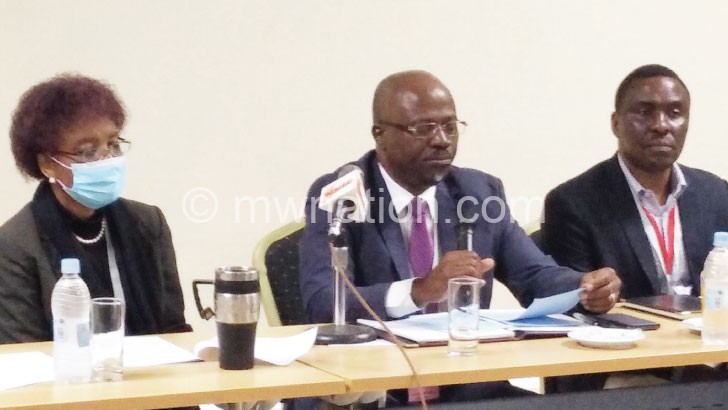Rights face cash squeeze
Despite expanding the mandate of Malawi Human Rights Commission (MHRC), the Lazarus Chakwera administration has launched a funding onslaught on theconstitutional body.
The 2020/21 National Budget that Minister of Finance Felix Mlusu tabled on September 11 allocated K1.063 billion against K1.100 billion in the last financial year, representing a cut of just over three percent at a time MHRC is tasked to implement the Access to Information (ATI) Act from this month end.

Besides the ATI Act, MHRC is also expected to implement the Gender Equality Act. Both pieces of legislation have been thrown a K20 million bone each.
The commission asked for K166 million to implement ATI this fiscal year, but Mlusu’s budget—currently under scrutiny in clusters of parliamentary committees—has allocated it just 12 percent of that, figures from the commission’s chairperson the Reverend Patrick Semphere show.
On the other hand, implementation of the Gender Equality Act needs K58 million this financial year, but ended up clutching just 34 percent of what they asked for, according to Semphere.
While ministries, departments and agencies (MDAs) typically do not get everything they ask for from Treasury due to spending ceilings, allocating exact equal amounts to two different programmes smacks of a hatchet job with little consideration to the two statutory tasks that are at the heart of good governance and national development.
In reaction to the cut in funding, the commission wrote: “The ideal budget for the commission for 2020/21, K2 200 000 000 of which K800 000 000 [is for] emoluments and K1 400 000 000 is for ORT [other recurrent transactions].
“It is important to know that the proposed allocation is only 54 percent of the ideal budget of the commission. The ORT requirements were arrived at to adequately meet the commission’s statutory obligations of ATIA and GEA. This reduction will greatly affect the performance of the commission.”
In an interview yesterday, Semphere said the funds required could have supported several activities such as orientation of MDAs, training of information officers, mapping of information holders, production of forms and guidelines, establishment of access to information unit and public awareness.
He said the funds could also have been used for stakeholders engagement on establishment of internal policies and procedures, capacity building for the commission and procurement of office equipment.
But in a separate interview yesterday, Minister of Information Gospel Kazako, who is the official government spokesperson, attributed the low levels of funding to resource constraints facing government.
He said: “On ATI, there are some partners and stakeholders that will come forward to also support implementation. The K20 million that we have set aside is still a sign that we want the law to be operationalised.
“However, there will never be enough money to meet all the needs. Even sectors such as health, agriculture, education have not received all the funds they required.
“It’s not just MHRC [that is affected]. There is certainly commitment to get the ATI and Gender Act operationalised, but we understand the concern only that we are pressed with resource constraints.”
Both Media Council of Malawi (MCM) chairperson Wisdom Chimgwede and Media Institute of Southern Africa (Misa) Malawi Chapter chairperson Teresa Ndanga, whose organisations have been championing the ATI law, yesterday expressed concern over the development.
Said Chimgwede: “This is worrying. Our hope with ATI implementation was that all was set. Under-funding the very system that must roll out the ATI is disengaging the same wheels but expecting them to move smoothly. It doesn’t work.
“We are very hopeful that this was an oversight and that it will be corrected; otherwise it sends a different message than that which was initially communicated.”
Taking her turn, Ndanga said: “This will make the work of MHRC really difficult. We appreciate the Tonse government’s speedy action in setting the commencement date, but that isn’t enough if implementation is made difficult with the finance hurdle.
“There is need to match rhetoric with action. Parliament has to consider revising the allocation upwards.”
The Tonse Alliance administration finally gazetted the ATI law early this month after years of advocacy and legislative gridlock, living up to Chakwera’s campaign promise. His predecessor, Peter Mutharika, signed the ATI into law in early 2017 after Parliament passed the Bill in December 2016. However, the law could not be rolled out as implementation of statutory measures such as gazetting and funding towards new offices were systematically foiled.





